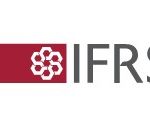ISO (International Organization for Standardization) should launch work addressing the social responsibility of organizations, according to an international advisory group including representatives of business,government regulators, trade unions and consumers.
The group recommends ISO to:
– firstly, develop a technical report surveying the worldwide state of the art in social responsibility codes, guidelines and specifications, and
– secondly, carry out a justification study with a view to the preparation of a management system guideline standard that specifically includes a process for the self-declaration of conformity by organizations and excludes conformity assessment involving third-party certification.
These recommendations will initially be considered by ISO’s Technical Management Board (TMB) by correspondence and then by the ISO Council at its meeting on 13-14 March 2003.
The recommendations were the outcome of the advisory group’s second meeting, held on 16-17 February 2003 in Geneva. The group was established by the TMB to examine the question of whether standardization work by ISO could add value to already existing programmes for the range of issues coming under the scope of what has come to be termed "corporate social responsibility".
However, the advisory group is recommending that any work by ISO should address the social responsibility not only of business corporations, but also of all types of organization. In a working paper identifying preliminary issues, the group states: "Although there are many entities
which use the word ‘corporate social responsibility (CSR)’, there is no single authoritative definition of the term and it is recognized that the term is evolving over time. However, most definitions emphasize the interrelationship amongst economic, environmental and social aspects and impacts of an organization’s activities.
"It is not this advisory group’s role to authoritatively define CSR. With respect to the use of the word ‘corporate’, it is understood that CSR had its origins in the context of commercial enterprises. ISO does not, as a rule, pre-determine which particular type of organization may use its
standards or other deliverables. As a result, we refer to possible ISO social responsibility deliverables without organizational specification."
The advisory group is chaired by Daniel Gagnier, Senior Vice President, Corporate and External Affairs, of the Canadian multinational corporation, Alcan Inc., who also chairs ISO/TC 207, the ISO technical committee responsible for the ISO 14000 series of environmental management standards.
The group currently comprises 21 participants chosen to represent a wide spectrum of stakeholder interests, including business, government regulators, trade unions and consumers, as well as different geographic regions. If ISO decides to go ahead with work on social responsibility, then
the group recommends that the organization should review its processes for involving stakeholders in order to ensure the broadest possible acceptance of the output.
ISO is the world’s largest developer of voluntary technical standards, having published nearly 14 000, including the ISO 9000 and ISO 14000 families for quality and environmental management, which are implemented by more than 540 000 organizations in 160 countries.
ISO’s work programme includes something to offer for the entire range of business and technology, from standards for traditional activities, such as agriculture and construction, through mechanical engineering, to medical devices, banking cards and toys, to the latest information technology
developments.



